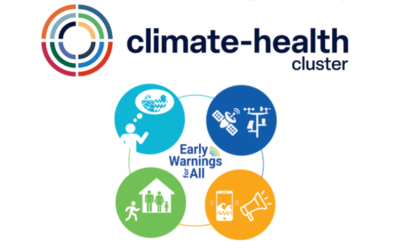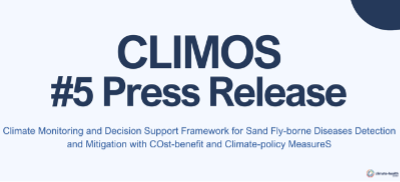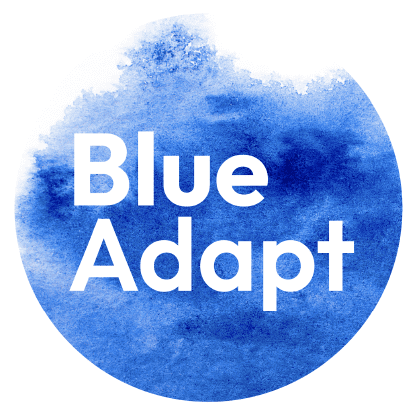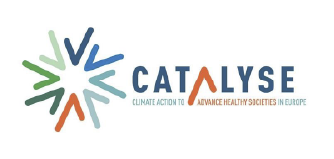The European Climate-Health Cluster aims to address climate change-induced health risks and help preparedness and adaptation.

Linking climate change & health
As a cluster, we promote synergies between the
environmental and health (research) communities and
Jointly, we generate a better understanding of the link
between climate change and health impacts and threats



Science translation for
policy & practice
We support policymakers in understanding the underlying health, economic and social impacts of climate change. We also inform evidence-based decisions for their policies and climate action acceleration.




Data analysis, management,
protection & standardisation
We share experiences and knowledge about data
management and protection, and we engage different
disciplines in data analysis and predictive modeling.




mailto:info@project-trigger.eu
Communication
& dissemination
We communicate and disseminate the Cluster’s work to raise awareness and transfer knowledge about climate-induced health risks.




Early warning systems
& models
We develop insights on how early warning systems can increase awareness and knowledge. This includes incentivising action to prevent risks and adapt.




Indicator development
We develop and monitor mechanisms to assess the impact of policies on health. We also make recommendations to decision-makers to mitigate risks and promote adaption.





Linking climate change & health
As a cluster, we promote synergies between the
environmental and health (research) communities and
Jointly, we generate a better understanding of the link
between climate change and health impacts and threats



We support policymakers in understanding the underlying health, economic and social impacts of climate change. We also inform evidence-based decisions for their policies and climate action acceleration.
Science translation for
policy & practice



We communicate and disseminate the Cluster’s work to raise awareness and transfer knowledge about climate-induced health risks.
Communication
& dissemination



We share experiences and knowledge about data
management and protection, and we engage different
disciplines in data analysis and predictive modeling.
Data analysis, management,
protection & standardisation



We develop insights on how early warning systems can increase awareness and knowledge. This includes incentivising action to prevent risks and adapt.
Early warning systems
& models



We develop and monitor mechanisms to assess the impact of policies on health. We also make recommendations to decision-makers to mitigate risks and promote adaption.
Indicator development


projects
partners
countries
objectives
funding Information

These projects are funded by EU’s Horizon Europe Research and Innovation initiative under Grant Agreement numbers 101057764 BlueAdapt, 101057131 CATALYSE, 101057690 CLIMOS, 101057843 HIGH Horizons, 101057554 IDAlert, 101057739 TRIGGER
news
Fundació Sanitària Mollet Wins The Healthy Futures Award at the European Sustainable Healthcare Awards 2024
Fundació Sanitària Mollet (FSM), a CATALYSE collaborator, has been honored with the Healthy Futures Award as part of the European Sustainable Healthcare Awards 2024, an initiative by Health Care Without Harm Europe. This award recognizes the groundbreaking project,...
Climate-Health Cluster: Celebrating closing the early warning gap together on World Meteorological Day
This World Meteorological Day, we are celebrating our work to close the early warning gap together with all six partners in the Climate-Health Cluster, who collaborate to increase the societal and policy impact of EU-funded research linked to climate, health and...
Developing projections of infectious disease risk under climate change
Dr. Laurens Bouwer, a senior scientist at Helmholtz-Zentrum Hereon, is at the forefront of understanding how climate change impacts infectious disease risks. As an expert in climate risk assessment, he brings critical insights into this complex global challenge. In...
In its final year, CLIMOS reduces the gap between science and policy in vector control
March 2025. During the recent General Assembly held in Turkey and hosted by EGE University, partners presented key findings and progress in sand fly monitoring, pathogen screening, data modelling for the EWS, and public health measures for preparedness.Sand fly...
Open access heat stress data for greece creates fresh opportunities for heat health research
HIGH Horizons researchers have published open access human thermal stress indices datasets for Greece that can be used by researchers or authorities aiming to investigate the relationship between heat and health in the country. HIGH Horizons researchers have published...
An interview with Jessica Robbins, founder of Leishmaniasis Advocacy Network (LAN)
My name is Jessica Robbins and I am the founder of Leishmaniasis Advocacy Network. I was infected with cutaneous Leishmaniasis, and I am here to tell you how a trip to the Mexican jungle led me to developing an advocacy network for patients around the world. How did...
Newly planted trees outside South African health facilities promise cooling shade for pregnant women and health workers
Walk up to a health facility in Tshwane, South Africa on a hot summer morning, and you are likely to find long, snaky queues of people, including pregnant women, waiting outside—in the full sun. “It’s scorching, but they don’t have shady places,” said Pamela Tshandu,...
CHAC 2024: Highlights from HIGH Horizons presentations at Africa’s first-ever climate health conference
HIGH Horizons researchers are proud to have taken part in Climate and Health Africa Conference 2024(CHAC), the first conference in history to focus solely on the intersection of climate change and health in Africa. The conference, held from 29-31 October, in Harare,...
Bridging the gap between scientific evidence and policy
“It’s not so much about how politicians can listen to researchers; it’s more about how we can work together to build spaces for discussion and create public policies together, finding a common language of understanding,” Leire Pajín Iraola, Member of the European...
IDAlert Experts Join UN Climate Change Initiative on Global Goal for Adaptation
We’re proud to announce that two of experts in the IDAlert projects, Shouro Dasgupta and Jan Semenza, have been selected to join an international consortium of 78 specialists convened by the United Nations Framework Convention on Climate Change (UNFCCC). This...
press release
english
Brochure
The Climate-Health Cluster is a Horizon Europe cooperation between 6 European research and innovation projects. We collaborate to increase the societal and policy impact of EU-funded research linked to climate, human health and climate policy.

policy brief
Discover how climate change affects human health and why it is crucial to integrate health protections into EU climate policies. In this report, the European Climate-Health Cluster urges legislators and policymakers to collaborate in creating evidence-based policies to effectively protect public health against climate challenges. Click here to read the full report and join us!

contact
If you want to get in contact with any project from the Climate-Health Cluster or follow them on social media, find all the links in our contact section.














